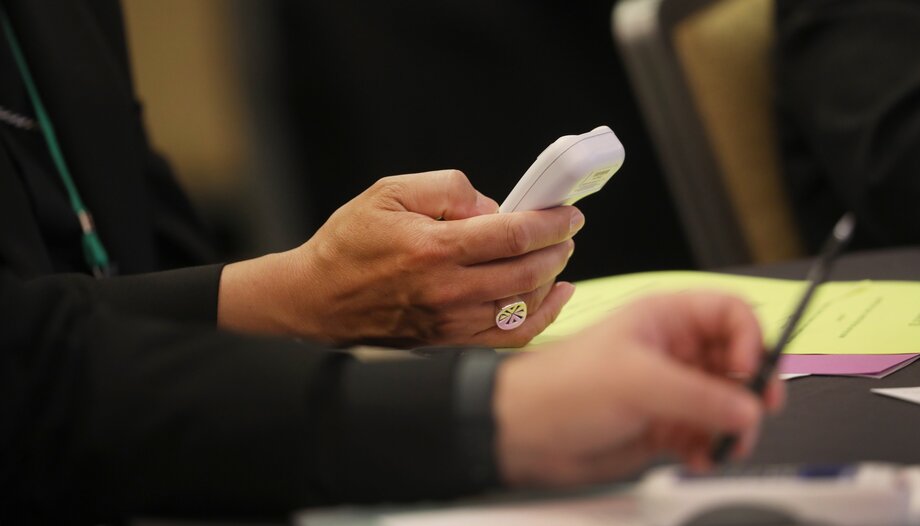From November 13 to 16, the Plenary Assembly of the United States Conference of Catholic Bishops (USCCB). Over the course of four days, bishops from all over the country gather to discuss issues relevant to the Church in the country, including developments concerning the Synod of Bishops, the National Eucharistic Congress, the Eucharistic Revival initiative, as well as the adaptation and modification of texts related to the political responsibility of Catholics (2024 is an election year in the USA) and a new outline for the indigenous pastoral.
The assembly began on Monday, November 13, with a Mass for peace in the world and in the Middle East. The ceremony took place at the Baltimore Cathedral in Maryland (Basilica of the National Shrine of the Assumption of Mary) and was presided over by Archbishop Timothy P. Broglio, Archbishop of the Archdiocese for the U.S. Military Services and President of the USCCB. In his homily, Archbishop Broglio asked God for the gift of peace in the world and pointed out that the Gospel message of mercy and reconciliation offers the answer to the conflicts we are experiencing: "We see the delicate situation in the Middle East today. We want to defend our elder brothers in faith, denouncing the outbreaks of anti-Semitism. At the same time we recognize the right of the Palestinians to a homeland. The suffering and death of innocents on both sides continues to horrify people of good will," the prelate said.
The USCCB president also spoke of the responsibility of bishops to conduct themselves according to the truth and alluded to the synodal way: "We recognize that we are servants of the truth and we are charged with seeking ways to help those entrusted to our pastoral care to receive that truth, see its logic and embrace the way of life that Christ offers us. We do this in many ways as we work synodically in serving the Church in this part of the world. The faith, Bishop Broglio pointed out, should never be used as a vehicle of protest and whoever does so falls into scandal: "The person who provokes scandal becomes a tempter of his neighbor, damages virtue and integrity and can even lead his brother to spiritual death. He who uses the power he has to lead others to commit evil becomes guilty of scandal and is responsible for the evil he has directly or indirectly encouraged," warned Archbishop Broglio.
Before the celebration of the Holy Mass, the bishops had moments of community prayer, reflection, adoration of the Blessed Sacrament, confession and opportunities for fraternal fellowship.
The public sessions of this assembly will begin on November 14. Cardinal Christophe Pierre, Apostolic Nuncio to the United States, and Bishop Timothy P. Broglio will open the formal work of the sessions with introductory addresses. The meeting agenda includes discussion of the newly created Institute on the Catechism; presentation of reports and updates from the Synod of Bishops, the National Eucharistic Congress, the Eucharistic Revival Initiative and the National Catholic Mental Health Campaign.
At the assembly, the bishops will discuss and vote on a new introductory note with supporting materials to the text on the bishops' teaching on political accountability, entitled "Forming Consciences for Faithful Citizenship." The prelates will also vote on an outline for the development of indigenous pastoral care called "Keeping Christ's Sacred Promise." As in every assembly, new English translations of a series of liturgical texts will be voted on during this session, among them adaptations of the "Liturgy of the Hours" and various sections of the "Ritual of Consecration of Virgins". In the liturgical area, Bishop Steven J. Lopez will lead a discussion on the topic "Use of Technology in the Liturgy".
The meeting will also vote to support both the cause for the beatification and canonization of the Servant of God Isaac Thomas Hecker, founding priest of the Missionary Society of St. Paul the Apostle (known as the "Paulist Fathers"), and the petition of the Bishops' Conference of England and Wales to ask the Holy Father to name St. John Henry Newman as a Doctor of the Church.








